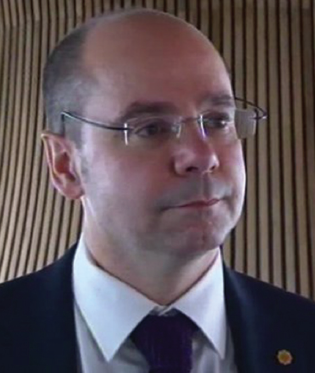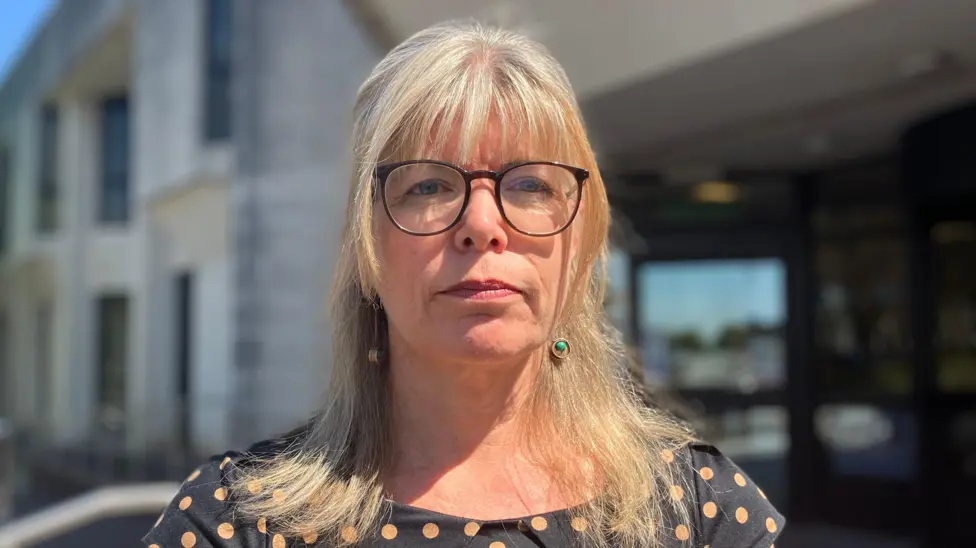Education
Labour seeks ‘nuanced changes’ to student finance


Labour ‘dishonest’ on higher education fees: Simon Thomas
A DECISION to kick announcements regarding the future of student finance in Wales made by former Education Minister Huw Lewis appears to have spectacularly backfired following comments made by former minister Julie James during a media interview.
Speaking at a Labour campaign event in Aberdare on Monday, Julie James, a Deputy Minister in the Education and Skills department of the last Welsh Government told BBC Wales: “We’re committed to continuing our current policy until Professor Diamond reports in the autumn.
“And then we’re committed to an evidence-based policy after that, with the commitment that Welsh students will always be better supported than their counterparts elsewhere.”
The Diamond report into Welsh Higher Education was commissioned as long ago as 2013 and a summary of evidence presented in December 2015 made uncomfortable reading for the then Welsh Government.
Speaking to The Herald at the time, Plaid Cymru’s Simon Thomas, a candidate in Carmarthen West and South Pembrokeshire, said: “The report (by Professor Sir Ian Diamond) could not be clearer. All of those bodies which responded to it agreed that the current tuition fee policy is completely unsustainable.
“The evidence is overwhelming and unanswerable, but the Welsh Government has decided to wait until October and then probably feign surprise when it is told things have to change. The Welsh Government’s position on tuition fees is dishonest.”
Indeed, every education institution – including the Higher Education Funding Council for Wales – that provided evidence to Professor Diamond said that the Welsh Government’s commitment to its student finance policy – especially tuition fees – was damaging the Welsh higher education sector and was untenable.
On the campaign trail, Labour has been combative on the issue, claiming that only it will maintain the favourable settlement on tuition fees that Welsh undergraduate students have. Leighton Andrews, the former Minister who can always be depended on to stick a spoon in a pot and stir it, has even taken to social media to deride parties who have failed to commit to maintaining an unaffordable and wasteful policy.
Now, Ms James, a former minister who was actually in the Education and Skills ministry when Professor Diamond’ summary of evidence was released has hinted that Welsh Labour’s approach may change ‘depending on what Professor Diamond says’. In particular, Ms James has hinted that the Assembly Learning Grant (currently set at around £5,000) will be targeted by any new Welsh Labour Government as a way of making up the shortfall in subsidising tuition fees for Welsh students.
Ms James suggests that: “There might be nuanced changes.”
Taking the fight to Plaid and the Conservatives on student finance when one of its own candidates and a former minister has now hinted at change and, moreover, claimed that a future Welsh Labour Government’s policy will be determined by a report which it kicked back until after the election, has drawn predictable fire from both Plaid Cymru and the Welsh Conservatives.
A Welsh Conservative spokesperson told The Herald: “Welsh Labour’s stance on this issue changes from one day to the next which is indicative of a party in complete disarray.
“Welsh Conservatives have long campaigned for a reform of Labour’s unsustainable tuition fee support policy and would introduce ‘Student Rent Rebate’, offering undergraduates timely and sustainable help with university living costs.
“We would further support students in reducing their debt by exploring the viability of fast-track degrees studied over two academic years.”
Responding to a Labour politician’s admission that the current level of support given to university students may be cut, Plaid Cymru’s Shadow Education Minister Simon Thomas said: “This is the first sign that Labour politicians are realising that they cannot maintain the fiction of their tuition fee policy as it is.
“Plaid Cymru has always said that the current system is unsustainable and our manifesto has committed to a more sustainable model of funding, whereby students who live and work in Wales within five years of graduating will have £6,000 of their loans written-off, up to £18,000.
“Voters deserve an honest answer about Labour’s plans. Pretending that things won’t change is unsustainable and there will be a huge black hole in Labour’s budget if they don’t explain what they will do with their tuition fee policy.”
Community
Letterston nursery equipment could be stored in cemetery

A CALL for a storage container for a “well-established and valued” Pembrokeshire children’s nursery in a nearby cemetery has been submitted to county planners.
In an application to Pembrokeshire County Council, Diane Evans of Meithrinfa Do Re Mi Nursery seeks permission for the installation of a storage container, partially in retrospect, at Horeb Cemetery, Station Road, Letterston.
A supporting statement says: “The container is required to provide essential ancillary storage to support the lawful and established nursery use within the [nearby] chapel building.
“The site forms part of an active cemetery, owned and managed by a group of trustees. The applicant is one of the trustees and has obtained formal permission from the trustees for the container to be sited on this land. The area selected previously comprised a large, longstanding mound of garden waste which has now been removed. The land has been levelled and prepared with a hard-standing base.
“The container will be used solely for storage of nursery equipment and materials, including outdoor learning resources, maintenance equipment, and items required to manage both the nursery grounds and the cemetery land. No additional operational activity will take place within or around the container.”
It adds: “The day nursery provides childcare for approximately 83 children from the local community and employs 21 staff, all of whom live locally. The nursery is a well-established and valued community facility, supporting local families and contributing positively to the local economy. Adequate storage is essential to ensure the safe, efficient and compliant operation of the nursery. The chapel building itself has limited internal storage, making external ancillary storage necessary.”
It says the nursery “operates with a strong community focus and promotes sustainability and environmental awareness,” with plans to soften its appearance through the planting of trees, shrubs and flowers.
It added: “Children will take part in a ‘sow, grow and give’ project, growing cut flowers from seed. These flowers will be made available to the community, particularly visitors to the cemetery, who will be invited to cut flowers to place on the graves of loved ones. This initiative enhances biodiversity, strengthens community links, and adds social value to the cemetery space.”
The application will be considered by county planners at a later date.
Education
Parents urge council not to close Ysgol Llansteffan

Campaigners call for delay amid Welsh language investigation and rising pupil numbers
PARENTS and campaigners have urged Carmarthenshire County Council’s Cabinet not to recommend the closure of Ysgol Llansteffan when members meet on Monday (Feb 23).
The appeal comes ahead of a proposed decision that could see the village’s Welsh-medium primary school close in August this year.
The Ysgol Llansteffan Parents and Teachers Association (PTA), supported by Cymdeithas yr Iaith, has written to councillors calling for the process to be halted, arguing that key evidence remains incomplete and that the case for closure is flawed.

Among their concerns is an ongoing investigation by the Welsh Language Commissioner into the language impact assessment used to support the closure proposal. Campaigners say it would be inappropriate for the council to make a final decision before the investigation is concluded.
They also claim no council decision-makers have visited the school to verify the information used in the proposal, despite significant changes in circumstances, including a rise in pupil numbers to 17 as of January 2026.
The PTA argues that this increase undermines earlier projections and raises questions about the reliability of longer-term forecasts used to justify closure.
Financial concerns have also been raised. While council documents suggest annual savings of around £112,000, campaigners say transport costs of approximately £50,000 per year and inflationary pressures have not been clearly accounted for, potentially overstating the net benefit.
Parents say closure would remove parental choice and risk damaging Welsh-medium education in the area by forcing some children to travel further or potentially move into English-medium provision.
Cymdeithas yr Iaith has backed the PTA’s call, warning that the council’s objection report failed to properly address concerns that insufficient school capacity elsewhere could push pupils out of Welsh-medium education altogether.
Campaigners have also criticised what they describe as factual inconsistencies in the council’s reports, including outdated enrolment figures and conflicting capacity estimates for neighbouring schools.
The PTA has asked the council to defer any decision until updated data is available, the Commissioner’s findings are published, and alternative options for sustaining the school have been fully explored.
In their letter, parents stressed they remain willing to work constructively with the council to develop a long-term solution that would allow the school to remain open as a sustainable Welsh-medium provision for the community.
Carmarthenshire County Council has previously said the proposal is intended to address falling pupil numbers, high surplus places and financial pressures at the school. Cabinet members were told earlier in the process that neighbouring Ysgol Llangain would have sufficient capacity to accommodate pupils if the closure proceeds, and that transferring learners would provide access to improved facilities and help ensure long-term sustainability of education provision in the area.
The final decision is expected to be taken by full council in March following the Cabinet’s recommendation.
Crime
Teacher stabbed by pupil criticises school weapon scanner plans

Victim says teachers should not be turned into “security guards” after Ammanford attack
A TEACHER who was stabbed multiple times by a pupil at a Carmarthenshire school has criticised proposals to introduce weapon scanners in classrooms, warning they risk shifting responsibility onto already overstretched staff.
Liz Hopkin was attacked by a teenage student at Ysgol Dyffryn Aman, Ammanford, in April 2024, in an incident that shocked communities across Wales.
Speaking to BBC Radio Wales, Ms Hopkin said she does not believe scanners are “the answer” to preventing violence in schools and warned they could undermine relationships between teachers and pupils.
She said the focus should instead be on preventing young people from bringing weapons to school in the first place.
“This isn’t about preventing people bringing knives into school in the first place. This is just about detection,” she said.
“If by the time you’ve got the knife in school, you’ve missed so many opportunities prior to that to stopping that knife coming in in the first place.”
Ms Hopkin also warned that introducing scanning responsibilities could place teachers in unsafe and inappropriate situations.
“To stop putting the responsibility onto schools — we already have enough responsibility with less and less and less resources,” she said.
“You’re adding the role of security guard to teachers who are trying to build relationships with young people.”
Despite suffering serious injuries in the attack, she said she still did not believe scanners were the right approach.
“In my own head, as somebody who’s been right at that point where I’ve been stabbed — I was stabbed five times and feared that I would die — I still don’t think it’s a good idea,” she said.
The Welsh Government told the BBC that its work around weapons in schools forms part of a wider strategy to improve behaviour, with a strong emphasis on prevention rather than enforcement.
Officials said any decision to use scanners would be made by individual local authorities, and there is no expectation that teachers or school staff should carry out security duties.
Some councils have already trialled handheld scanners. Cardiff Council has supplied them to schools, but they are only used when there is a clear concern a pupil may be carrying a weapon.
The stabbing at Ysgol Dyffryn Aman led to renewed debate about school safety across Wales, including behaviour management, pupil support services, and funding pressures facing education.
Ms Hopkin added: “I would never ever suggest that anybody put themselves at risk to check. That’s not our role.”
(Image: BBC)
-

 Health5 days ago
Health5 days agoWithybush loses emergency surgery in shock health board decision
-

 Health5 days ago
Health5 days agoHealth board confirms major hospital changes across west Wales
-

 Health3 days ago
Health3 days agoConcerns grow over Bronglais stroke plans as politicians demand clarity
-

 Health5 days ago
Health5 days agoHealth board: Changes will bring “resilience and sustainability” to West Wales services
-

 Local Government2 days ago
Local Government2 days agoCandidate who withdrew from Hakin race will still appear on ballot paper
-

 Business7 days ago
Business7 days agoMS’s host business advice surgery following demand from Business Rates Online Forum
-

 Crime7 days ago
Crime7 days agoMan charged with GBH with intent following incident involving ‘Pembrokeshire Patriot’
-

 Crime7 days ago
Crime7 days agoTeen given community order after assaulting police officer at hospital





























linda macdonald
October 9, 2025 at 5:44 am
Absolutely loved reading this! Tune into tv9 live in kannada — regional and national coverage. clean player and quick start. ground reports, special programs. dependable HD streaming.